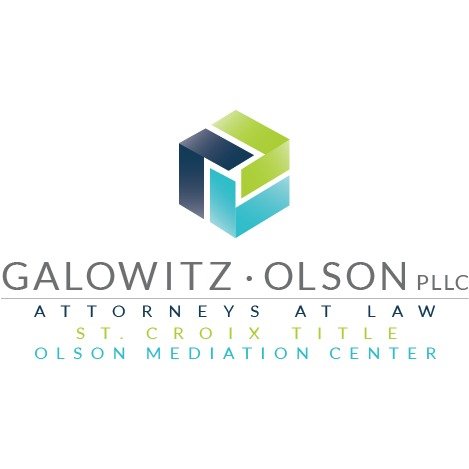Best Art & Cultural Property Law Lawyers in Minnesota
Share your needs with us, get contacted by law firms.
Free. Takes 2 min.
Or refine your search by selecting a city:
List of the best lawyers in Minnesota, United States
About Art & Cultural Property Law in Minnesota, United States
Art and Cultural Property Law is a specialized field that concerns the rights, responsibilities, and legal protections surrounding artworks, artifacts, and objects of cultural significance. In Minnesota, this area of law combines elements of property law, intellectual property, contracts, and state and federal regulations. It addresses the ownership, transfer, protection, and restitution of fine art, antiques, indigenous items, and items of historic or cultural value. Artists, collectors, dealers, museums, indigenous groups, and local governments all have interests governed by art and cultural property law in Minnesota.
Why You May Need a Lawyer
There are several situations in which seeking legal advice in art and cultural property law can be critical. Common circumstances include:
- Purchasing, selling, or donating artworks or culturally significant items
- Provenance disputes or questions about the origin of an artwork or artifact
- Art authentication conflicts or art fraud situations
- Intellectual property concerns, including copyright and moral rights of artists
- Loan agreements for exhibitions or museum displays
- Restitution claims for art lost, stolen, or looted
- Export or import of cultural property across state or national borders
- Disputes over public art, historic sites, or indigenous artifacts
- Navigating compliance with federal and state regulations regarding historic preservation
A lawyer who specializes in this field can help protect your rights, ensure compliance with evolving laws, and guide you through complex processes involving valuable or sensitive items.
Local Laws Overview
Art and cultural property law in Minnesota is shaped by state statutes, federal laws, and applicable international conventions. Key aspects include:
- Ownership and Title: Minnesota applies standard property and contract law principles to the ownership, acquisition, and transfer of art and cultural property. Ensuring clear title and provenance is essential.
- State Preservation Laws: The Minnesota Historic Sites Act and State Historic Preservation Office oversee the protection of registered landmarks, archaeological sites, and culturally important structures.
- Native American Graves Protection and Repatriation Act (NAGPRA): While a federal law, it is implemented throughout Minnesota for Native remains and artifacts, affecting museums, universities, and other institutions in the state.
- Minnesota's Visual Artists Rights Act: Although largely derived from federal law, Minnesota recognizes some moral rights for artists regarding attribution and integrity of their artworks.
- Minnesota Indian Affairs Council: This agency oversees the interests of Minnesota’s tribal nations regarding cultural patrimony and artifact repatriation.
- Theft and Fraud: Minnesota enforces strict laws against the theft, trafficking, and fraudulent misrepresentation of artworks and cultural property.
- Donation and Taxation: Minnesota provides guidance for the charitable donation of art, including appraisals, fair market value, and related tax benefits or obligations.
Minnesota law works in conjunction with broader federal and international regulations, making legal guidance especially important in this field.
Frequently Asked Questions
What is considered cultural property in Minnesota?
Cultural property generally refers to artifacts, artworks, documents, or objects that have historical, religious, artistic, or cultural significance. In Minnesota, this includes Native American artifacts, historic buildings, works of art, manuscripts, and other items of local heritage.
How can I verify the provenance of an artwork?
Verifying provenance involves researching the documented history of an item's ownership and transfer. This may require reviewing sales records, catalogues, estate documents, and certificates of authenticity. Engaging a lawyer or professional appraiser can help ensure the provenance is legitimate and unencumbered by disputes.
How are stolen artworks handled in Minnesota?
Stolen artworks are subject to Minnesota and federal criminal laws. If theft is suspected, the owner should report the loss to law enforcement and potentially to national registries such as the Art Loss Register. Legal processes can facilitate restitution or recovery, especially if the item resurfaces on the art market.
What rights do artists retain over their work after it is sold in Minnesota?
Artists may retain certain rights under federal and state law, particularly regarding attribution and protection of the artwork from intentional distortion or destruction. These are sometimes known as moral rights, and are partially protected in Minnesota.
Can I legally purchase Native American artifacts in Minnesota?
The sale and purchase of Native American artifacts is regulated by both federal and state laws, especially regarding items of sacred or cultural significance. It is important to ensure items are not subject to NAGPRA, tribal ownership, or other legal restrictions before acquiring them.
How do museums in Minnesota acquire cultural property?
Museums must comply with due diligence standards, ensuring clear provenance and legal acquisition. For Native American or other sensitive items, consultation with tribes and adherence to repatriation laws is required.
What happens if a work of art is found to be a forgery?
If a work is discovered to be a forgery, buyers may have civil remedies against sellers for misrepresentation or breach of contract. Consulting with a lawyer is important to assess next steps and potential recovery.
Who oversees historic preservation in Minnesota?
The Minnesota State Historic Preservation Office coordinates the identification, evaluation, registration, and protection of the state’s historic and archaeological resources.
What should I do if I want to export art or cultural property from Minnesota?
Exporting art or cultural property may require compliance with state, federal, and international laws. Some items may require permits, and certain objects may be restricted from leaving the United States. Legal consultation is recommended before exporting significant property.
How can I donate art to a Minnesota museum or institution?
Donating art typically involves transferring legal title, documenting provenance, obtaining an appraisal, and satisfying the institution’s acceptance procedures. Tax considerations are also important, and legal guidance can help ensure a smooth donation process.
Additional Resources
- Minnesota State Historic Preservation Office
- Minnesota Indian Affairs Council
- Minnesota Historical Society
- U.S. Department of the Interior - National Park Service (NAGPRA)
- College Art Association’s Code of Ethics for Art, Archaeology, and Cultural Heritage
- Local bar associations with cultural property and art law sections
- Major Minnesota museums such as the Minneapolis Institute of Art, which may have resources or guidelines for dealing with art and cultural property
These organizations offer guidance, information, and in some cases, legal referral services for individuals and institutions dealing with art or cultural property matters.
Next Steps
If you believe you need legal assistance regarding art or cultural property in Minnesota, consider taking the following steps:
- Gather all documentation and information relevant to your art or cultural property matter
- Clearly identify your goals or concerns, whether they relate to acquisition, sale, donation, disputes, or preservation of items
- Contact a Minnesota attorney who specializes in art and cultural property law to discuss your situation
- Consult relevant organizations or government bodies for guidance or referrals as listed in the resources above
- Keep detailed records of all communications, transactions, and legal processes related to your case
Acting promptly can help protect your interests and ensure compliance with complex legal requirements in this field.
Lawzana helps you find the best lawyers and law firms in Minnesota through a curated and pre-screened list of qualified legal professionals. Our platform offers rankings and detailed profiles of attorneys and law firms, allowing you to compare based on practice areas, including Art & Cultural Property Law, experience, and client feedback.
Each profile includes a description of the firm's areas of practice, client reviews, team members and partners, year of establishment, spoken languages, office locations, contact information, social media presence, and any published articles or resources. Most firms on our platform speak English and are experienced in both local and international legal matters.
Get a quote from top-rated law firms in Minnesota, United States — quickly, securely, and without unnecessary hassle.
Disclaimer:
The information provided on this page is for general informational purposes only and does not constitute legal advice. While we strive to ensure the accuracy and relevance of the content, legal information may change over time, and interpretations of the law can vary. You should always consult with a qualified legal professional for advice specific to your situation.
We disclaim all liability for actions taken or not taken based on the content of this page. If you believe any information is incorrect or outdated, please contact us, and we will review and update it where appropriate.
Browse art & cultural property law law firms by city in Minnesota
Refine your search by selecting a city.











